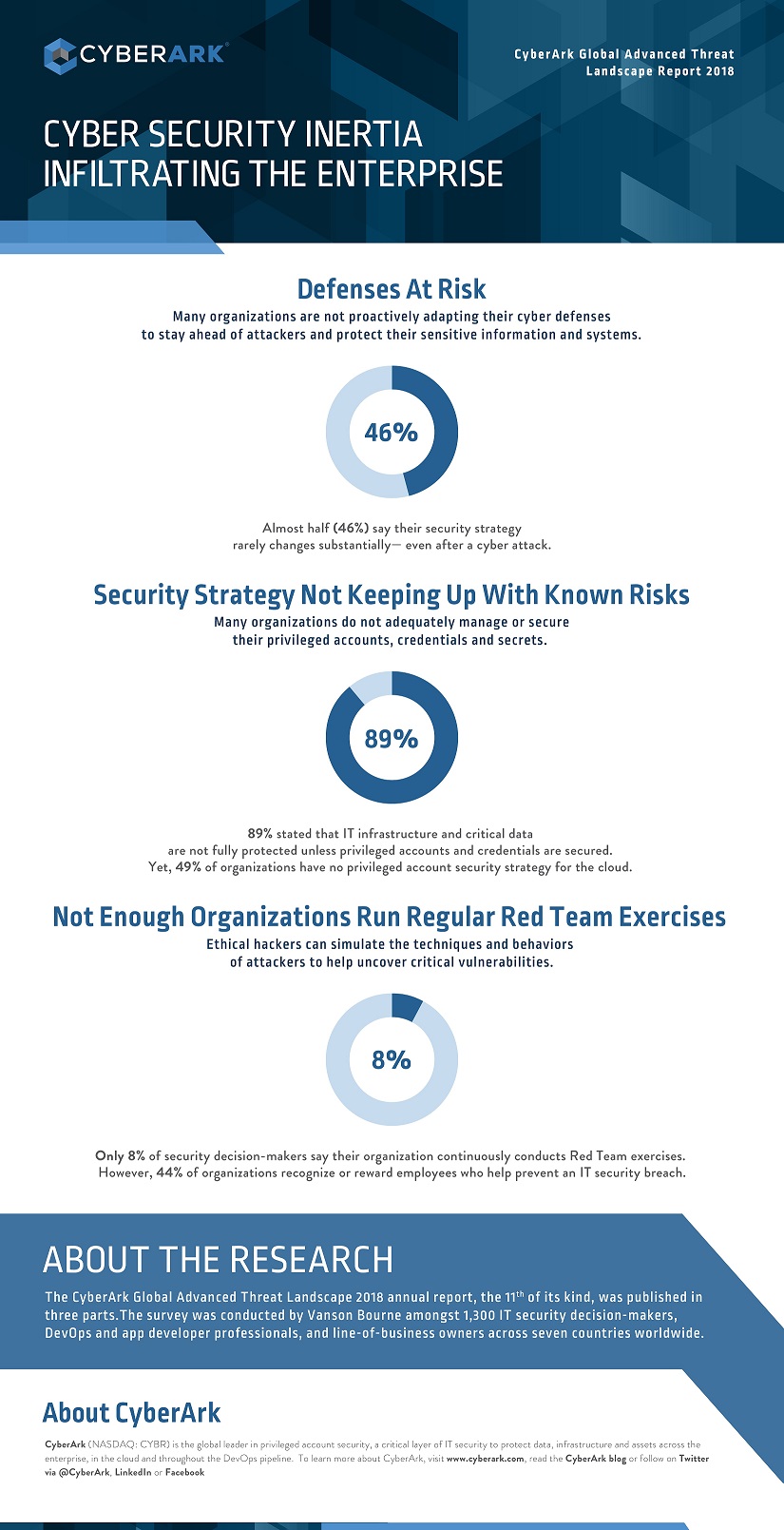webAI and MacStadium(link is external) announced a strategic partnership that will revolutionize the deployment of large-scale artificial intelligence models using Apple's cutting-edge silicon technology.
It wasn't long ago when operations, development and security teams didn't talk to each other – and probably sat at different lunch tables in the cafeteria.
Fortunately, when it comes to operations and development, DevOps has changed the traditional compartmentalized style of development by eliminating silos. These teams recognize that operational considerations need to be factored into development decisions from the very beginning, and vice versa to achieve optimal performance.
But what about the security team? Security is largely still siloed from operations and development. No doubt, many DevOps teams have some security controls baked into their automation processes, but a recent survey shows there are still alarming gaps.
Survey Says: The Secret is Out
According to the 2018 CyberArk Global Advanced Threat Landscape report, fewer than half of DevOps survey respondents said DevOps and security teams are well integrated and 41 percent say security teams are only brought in at the end of the development cycle. It's hard to defend the notion that security is built into the DevOps process when most organizations admit that DevOps and security teams are not well integrated.
And while development and operations teams can be expected to be knowledgeable about security to a certain point, it is unreasonable to expect them to have the level of security expertise that security teams have acquired through years of experience. The lack of maturity when it comes to DevOps security is made apparent throughout the report.
Many DevOps teams run automatic vulnerability scans or take other measures to eliminate the low hanging security fruit. This is a great first step, but 75 percent of organizations reported they have no privileged account security strategy for DevOps. Even worse, 99 percent of respondents failed to identify the different places privileged accounts or secrets could exist in a DevOps environment.
Privileged accounts, secrets and credentials equal access to an organization's data and infrastructure. With this access, an attacker can impersonate anyone within the organization and take almost anything they want.
Infrastructure-as-code is the engine that fuels DevOps velocity. However, it also means that everything a DevOps team has done, institutional know-how and intellectual property can be more easily stolen.
Making the Case for DevOps Security
Attackers will exploit organizations where they are weak, making unsecured and unmanaged "secrets" – including privileged account credentials, SSH Keys, API keys and more – a new favorite target for attackers.
These secrets are often hardcoded in clear text or publicly accessible, making DevOps a massive security risk to organizations. Attackers know this and are currently exploiting these vulnerabilities and scanning for exposed SSH keys(link is external) across the internet.
Bottom line – DevOps has changed the game in terms of productivity, but security needs to be a part of the journey. The move from waterfall to agile development has taught us the most efficient time to make a change is at the beginning of the process, which is true of security too.
Security teams need to be included in the DevOps process from the beginning to reduce the cost of changes made later on. Security tools have evolved over time to meet DevOps security teams and not to disrupt DevOps flow or velocity. Any credible security solution will need the ability to be automated and have a small, if not invisible, footprint on DevOps teams.

Industry News
Development work on the Linux kernel — the core software that underpins the open source Linux operating system — has a new infrastructure partner in Akamai. The company's cloud computing service and content delivery network (CDN) will support kernel.org, the main distribution system for Linux kernel source code and the primary coordination vehicle for its global developer network.
Komodor announced a new approach to full-cycle drift management for Kubernetes, with new capabilities to automate the detection, investigation, and remediation of configuration drift—the gradual divergence of Kubernetes clusters from their intended state—helping organizations enforce consistency across large-scale, multi-cluster environments.
Red Hat announced the latest updates to Red Hat AI, its portfolio of products and services designed to help accelerate the development and deployment of AI solutions across the hybrid cloud.
CloudCasa by Catalogic announced the availability of the latest version of its CloudCasa software.
BrowserStack announced the launch of Private Devices, expanding its enterprise portfolio to address the specialized testing needs of organizations with stringent security requirements.
Chainguard announced Chainguard Libraries, a catalog of guarded language libraries for Java built securely from source on SLSA L2 infrastructure.
Cloudelligent attained Amazon Web Services (AWS) DevOps Competency status.
Platform9 formally launched the Platform9 Partner Program.
Cosmonic announced the launch of Cosmonic Control, a control plane for managing distributed applications across any cloud, any Kubernetes, any edge, or on premise and self-hosted deployment.
Oracle announced the general availability of Oracle Exadata Database Service on Exascale Infrastructure on Oracle Database@Azure(link sends e-mail).
Perforce Software announced its acquisition of Snowtrack.
Mirantis and Gcore announced an agreement to facilitate the deployment of artificial intelligence (AI) workloads.
Amplitude announced the rollout of Session Replay Everywhere.
Oracle announced the availability of Java 24, the latest version of the programming language and development platform. Java 24 (Oracle JDK 24) delivers thousands of improvements to help developers maximize productivity and drive innovation. In addition, enhancements to the platform's performance, stability, and security help organizations accelerate their business growth ...













